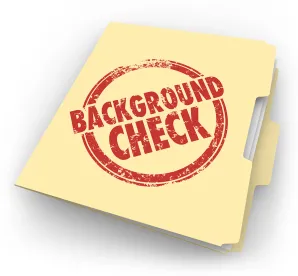Conducting criminal background checks on job candidates is a common practice for employers but one that raises a host of compliance concerns amid a series of federal, state, and local laws and regulations governing how and when background checks may be conducted.
Ogletree Deakins’ recent survey report, Strategies and Benchmarks for the Workplace: Ogletree’s Survey of Key Decision-Makers, highlighted that background checks present one of the top five most challenging multi-jurisdictional compliance issues for employers. The survey further indicated that in today’s competitive labor market, more than 17 percent of employers have eliminated or relaxed background check requirements to address recruiting and hiring challenges.
Several recent developments are further complicating employers’ abilities to conduct criminal history inquiries and background checks on job applicants.
Disclosure Requirements
Background check disclosure is a key part of the federal Fair Credit Reporting Act (FCRA) and has become a hot area for class action claims. Before an employer runs a background check on an applicant, the employer must disclose to the applicant that the employer may obtain a background check or consumer credit report for employment purposes.
The FCRA imposes technical requirements for the exact language; adding too much information or not enough may give rise to liability. For instance, a 2022 California Court of Appeal ruling allowed a proposed FCRA class action alleging a legal disclaimer mistakenly left in a background check disclosure was improper “extraneous” information to proceed against the employer.
Under the FCRA, companies may face statutory damages of $100 to $1,000 per violation, which can add up if an organization has conducted a number of background checks over several years. Further, contracts between employers and background check vendors typically do not require vendors to indemnify employers for noncompliance, leaving employers liable for significant fines and penalties.
Ban the Box Laws
Des Moines, Iowa, last year became the latest jurisdiction to pass a “ban-the-box” law that will limit employer inquiries and background checks into a job applicant’s criminal history early in the hiring process. While ban-the-box laws were initially intended to prohibit the threshold question on an employment application about whether an applicant has been convicted of a crime in the past, jurisdictions such as Des Moines are increasingly imposing substantive restrictions for employers in this area.
There is now a focus on timing of when employers may inquire about criminal history or conduct a background check. The Des Moines law, which passed in November 2021, makes it “illegal and discriminatory” for employers to either inquire about an applicant’s criminal history or conduct a criminal background check prior to the employer making a conditional offer of employment to the applicant
Additionally, a number of jurisdictions such as New York City and Philadelphia, have upgraded their existing ban-the-box laws to make their even more restrictive.
Personal Identifying Information Publication Restrictions
New case law, rules and interpretations in Michigan and California—designed to protect the publication of personal identifying information (PII) data like date of birth from court records—are making background checks more difficult. Consumer reporting agencies (CRAs) use PII, such as birthdates, to confirm criminal history records in order to comply with the high accuracy and verification standards under the FCRA.
The rules originally issued by the Michigan Supreme Court in July 2021 prohibited Michigan courts from releasing PII on court records, though the court has recently amended the rules to allow background check companies to seek permission from job applicants to obtain that information.
California is a different story. Following the 2021 California Court of Appeal ruling in All of Us or None v. Hamrick, which prohibited the Riverside County Superior Court’s electronic criminal case docket from being searchable by an individual’s date of birth or driver’s license number, several other courts in the state have stated they are no longer going to provide that information.
There is not yet a clear workaround for conducting background checks in California, but a bill introduced in February 2022, Senate Bill (SB) 1262, seeks to provide a solution legislatively. In the meantime, background check companies may need to use other means to verify criminal history information either from statewide sources or by confirming information directly with district attorneys.
Key Takeaways
The burden for compliance with background check requirements often is on employers, not background check providers. Employers may want to consider reviewing their background check disclosures and processes to ensure compliance with the relevant federal, state, and local laws and regulations.






 />i
/>i

